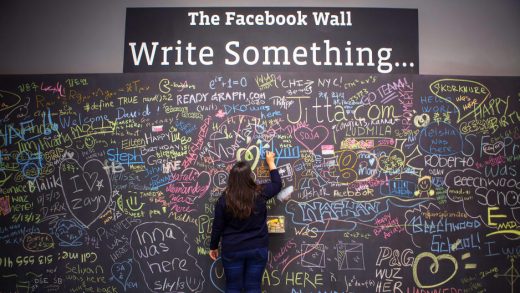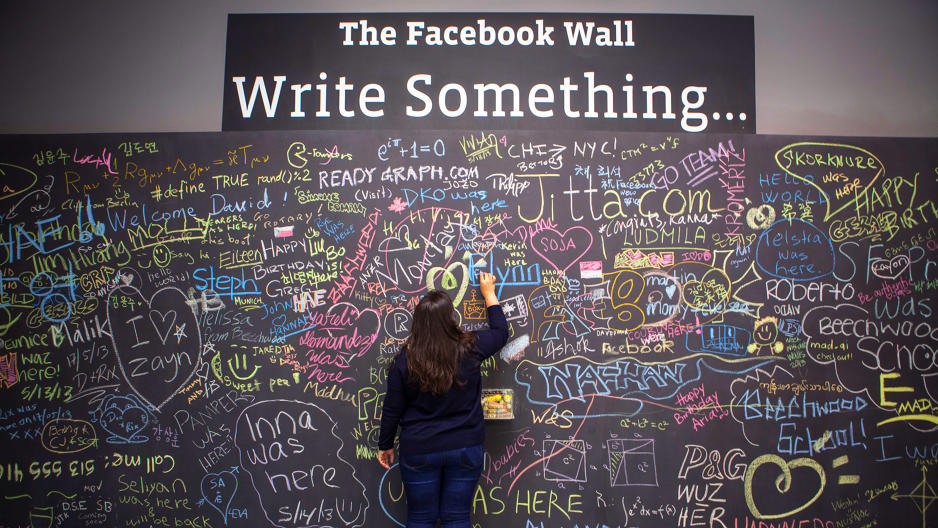Facebook Finally Admits It’s A Giant Media Company—Almost
Media
[mee-dee-uh]
noun
1. a plural of medium.
2. (usually used with a plural verb) the means of communication, as radio and television, newspapers, magazines, and the Internet, that reach or influence people widely: The media are covering the speech tonight.
Ever since it first launched, Facebook has resisted being described as a media company. Founder and CEO Mark Zuckerberg has instead insisted that the social network is just a platform for ideas, even as its role as a source of news and information has expanded exponentially, with 44% of Americans now getting their news from Facebook. When the fake news controversy erupted in the wake of the election, he continued to insist that he didn’t want Facebook to become “arbiters of truth”—in other words, editors who choose what people should and should not be reading.
Still, it certainly meets Webster’s definition of media: “the means of communication, as radio and television, newspapers, magazines, and the internet, that reach or influence people widely.” And since the election, it seems to be inching toward accepting responsibility for the news content shared on its platform. Last month, it partnered with fact-checking organizations to flag fictitious stories and conspiracy theories. Last week, it hired former CNN anchor Campbell Brown as its liaison to myriad publishers.
And today, it launched the Facebook Journalist Project, which sounds a hell of a lot like journalism. The initiative includes almost every element of what traditional media companies do, such as developing news products and “storytelling formats,” training journalists, promoting “news literacy,” and helping shape the news. All that’s missing is the actual reporting and writing—which is what makes it a media company, rather than a publisher.
According to a post by Fidji Simo, Facebook’s director of product, the new initiative will “establish stronger ties between Facebook and the news industry.” He later told the New York Times, which has been invited to take part in the project: “We’ve heard loud and clear over the last year that there are questions about our role in this ecosystem. It has added an extra motivation for us to be involved even earlier on.”
Not that these changes will be good for the rest of the media. Due to Facebook’s gargantuan reach, publishers depend on it to reach readers, but they continue to lose revenue as advertisers swarm the social network. Not to exaggerate the situation (actually, yes, to exaggerate the situation), but it could be compared to the Greeks accepting the gift of the Trojan horse, or even how a female praying mantis bites the head off the male of the species right after having sex with it.
Though, to be fair, some of the initiative’s features should help publishers attract subscribers and bolster their bottom line for now. It just partnered with German tabloid, Bild, to offer free trial subscriptions to readers (who are then more likely to become paid subscribers) from within Instant Articles, the quick-loading articles on Facebook’s app. And it plans to provide financial grants to news organizations engaged in projects that improve news literacy and research, though the details remain vague.
So far, the initiative has prompted cautious optimism. Jennifer Preston, the vice president for journalism at the Knight Foundation, which will partner with Facebook on the project, acknowledged the social network has disrupted the traditional business model for media companies. But she noted, that since 1.79 billion people around the world consume news and information on Facebook, “It has a huge opportunity to do a better job helping inform local communities with quality information. We see this as an important step by Facebook to move toward a level of civic responsibility demanded by its role as the primary conduit of news and information for billions. We’re delighted that it’s just the beginning of their effort.”
The Facebook Journalism Project includes the following initiatives:
• Collaborating with news organizations to develop products, including building entirely new “storytelling formats”—such as how to present packages of stories—and helping evolve current formats such as Facebook Live, 360, and Instant Articles.
• Supporting local news and independent media, working with with them to promote their content and shape “what local news on Facebook could look like.”
• Helping publishers develop new tools by expanding their legendary hackathons to have Facebook engineers host sessions with news organization developers “to collaborate to identify opportunities and hack solutions.”
• Investing in research and projects that promote “news literacy”
• Partnering with the well-respected Poynter journalism institute to launch a certificate curriculum for journalists, as well as going into newsrooms to discuss “best practices” and find ways to “engage and build audiences around their reporting.”
Fast Company , Read Full Story
(21)



